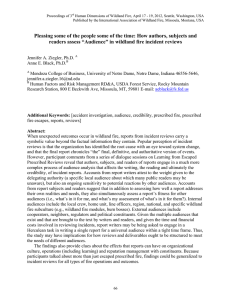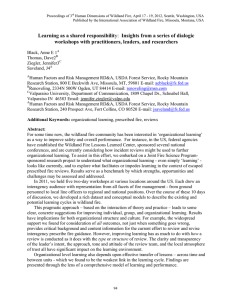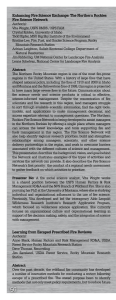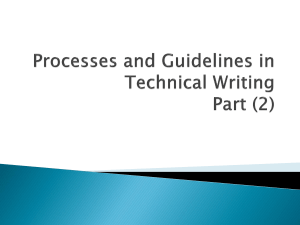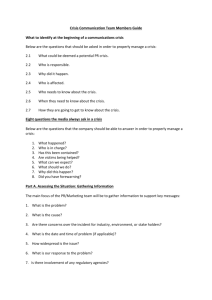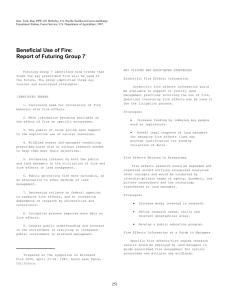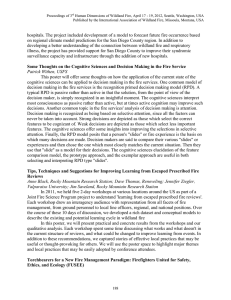20. Pleasing some of the People some of the... authors, subjects and readers assess “audience” in
advertisement
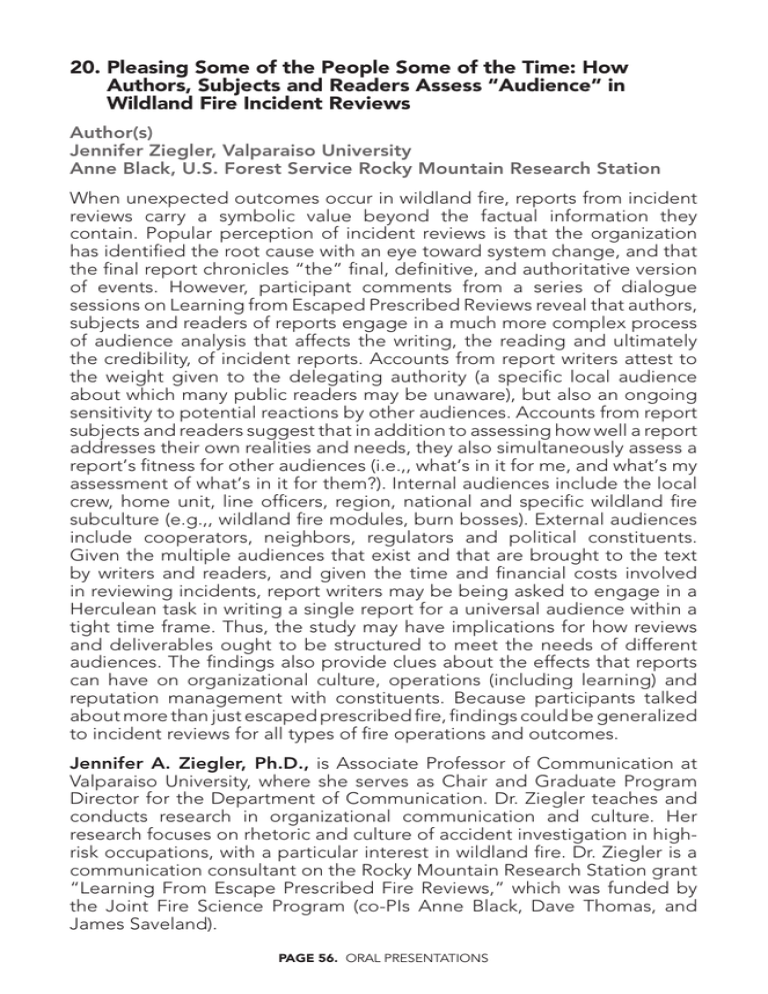
20. Pleasing Some of the People Some of the Time: How Authors, Subjects and Readers Assess “Audience” in Wildland Fire Incident Reviews Author(s) Jennifer Ziegler, Valparaiso University Anne Black, U.S. Forest Service Rocky Mountain Research Station When unexpected outcomes occur in wildland fire, reports from incident reviews carry a symbolic value beyond the factual information they contain. Popular perception of incident reviews is that the organization has identified the root cause with an eye toward system change, and that the final report chronicles “the” final, definitive, and authoritative version of events. However, participant comments from a series of dialogue sessions on Learning from Escaped Prescribed Reviews reveal that authors, subjects and readers of reports engage in a much more complex process of audience analysis that affects the writing, the reading and ultimately the credibility, of incident reports. Accounts from report writers attest to the weight given to the delegating authority (a specific local audience about which many public readers may be unaware), but also an ongoing sensitivity to potential reactions by other audiences. Accounts from report subjects and readers suggest that in addition to assessing how well a report addresses their own realities and needs, they also simultaneously assess a report’s fitness for other audiences (i.e.,, what’s in it for me, and what’s my assessment of what’s in it for them?). Internal audiences include the local crew, home unit, line officers, region, national and specific wildland fire subculture (e.g.,, wildland fire modules, burn bosses). External audiences include cooperators, neighbors, regulators and political constituents. Given the multiple audiences that exist and that are brought to the text by writers and readers, and given the time and financial costs involved in reviewing incidents, report writers may be being asked to engage in a Herculean task in writing a single report for a universal audience within a tight time frame. Thus, the study may have implications for how reviews and deliverables ought to be structured to meet the needs of different audiences. The findings also provide clues about the effects that reports can have on organizational culture, operations (including learning) and reputation management with constituents. Because participants talked about more than just escaped prescribed fire, findings could be generalized to incident reviews for all types of fire operations and outcomes. Jennifer A. Ziegler, Ph.D., is Associate Professor of Communication at Valparaiso University, where she serves as Chair and Graduate Program Director for the Department of Communication. Dr. Ziegler teaches and conducts research in organizational communication and culture. Her research focuses on rhetoric and culture of accident investigation in highrisk occupations, with a particular interest in wildland fire. Dr. Ziegler is a communication consultant on the Rocky Mountain Research Station grant “Learning From Escape Prescribed Fire Reviews,” which was funded by the Joint Fire Science Program (co-PIs Anne Black, Dave Thomas, and James Saveland). Page 56. oral presentations
